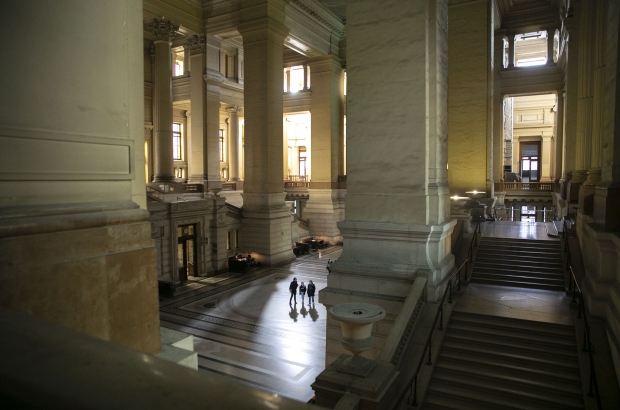- Daily & Weekly newsletters
- Buy & download The Bulletin
- Comment on our articles
Record backlog: Lawyer told case will not go to court until 2040
A massive backlog in the Brussels court system is pushing court dates years into the future.
Lawyer Pierre-Philippe Hendrickx received a letter saying that one of his cases will not be heard before April 2040, Bruzz reports.
“This is unacceptable,” said Hendrickx. “I fell off my chair. Even after checking, I couldn't believe it.”
The case in question concerns a tax dispute, which adds a unique layer of complexity.
“Still, this is unacceptable – 2040 is an estimate, but even if the case can eventually be heard within eight years, that is still far too long,” Hendrickx argued.
“The lives of self-employed people are destroyed and companies go bankrupt because unlawful taxes cannot be challenged within a reasonable time. This is an attack on the rule of law.”
An audit of the Brussels Court of Appeal last year by the Supreme Judicial Council found that “the judicial backlog has been dragging on for at least two decades now”, in part due to a lack of magistrates and court clerks and also as a result of several large and complex cases the court has to deal with.
“This incredible backlog is the result of years of looking away,” Hendrickx said.
"As early as 2010, there were stories of cases that could only occur years later. Decisive action is needed, because we are not going to get there with a few more magistrates.
"Moreover, you still have to fill those vacancies: new magistrates are already having a nervous breakdown when they see the piles of files they have to process.”
Another factor is that all appeals in tax cases have suspensive effect, meaning provisional execution is not possible after a favourable first instance ruling, while cases continue to drag on in the meantime.
Belgium’s justice minister, on the other hand, said the difficulty in reducing the backlog has more to do with the organisation of available resources than a lack of staff.
According to Hendrickx, giving the government a push would be a step towards resolution: “Let the interest due to the state in tax disputes fall away if there is no ruling within six months. I bet the backlog of tax cases would be cleared quickly.”
Other tax lawyers confirmed that the time taken between the lodging of an appeal and the oral arguments is often seven to eight years.
Arnaud Scheyvaerts, a lawyer specialising in tax law, noted delays of years.
“At the moment, we are hearing cases on appeal that were lodged in 2016 or 2017,” said Scheyvaerts. “The delays are getting longer and longer.”
The Brussels Court of Appeal estimates that in the French-speaking tax chambers, cases are generally decided five years after the lawyers have completed their preparation.
“This is certainly unacceptable for the litigant,” the court of appeals itself admits, adding that it is working to reduce the backlog of court cases.
“The Brussels Court of Appeal empirically estimates that it will take 10-15 years to clear its backlog, with a massive but gradual influx of around 25-30 magistrates - so as not to overburden the courts of first instance.”
When it comes to the decades-long delays being predicted in correspondence to lawyers, the court noted that the computer system used “to enable litigants to obtain an indication of the foreseeable date on which their case will be set down for oral argument” is “not perfect”.
“It has to be said that this computer programme does not reflect the reality on the ground,” the court insisted.
“In French-speaking tax chambers, cases are generally set to be heard five years after the end of their pretrial by the lawyers – but not 15 years after the pre-trial, as calculated by the aforementioned programme.”

















